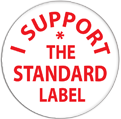Kim Cameron points to a post by Deborah Schultz, which happens to be a great segue into my follow up with Steve Gillmor:
My latest mantra:
Everyone step away from the keyboard and Engage with Intent in “offline communityâ€
Steve left me a comment the other day, inviting me to call him. So I did.
It was a good conversation.
I still have some lingering questions that will probably only resolve once the GestureBank system gets into play–such as how the system threads the balance between lost context from anonymity and richer context with greater risk of privacy loss–but on the whole, I emerged a stronger supporter of the AttentionTrust.
Why? Mostly because most of my issues appear to be non-issues for the vision that Steve is working to bring into reality. My concerns should be able to work themselves out within the context of the community and still retain integrity to what Steve is trying to create.
I can work with that.
So let’s take a look at some confusing language in the AttentionTrust principles.
Our Principles
When you pay attention to something (and when you ignore something), data is created. This “attention data” is a valuable resource that reflects your interests, your activities and your values, and it serves as a proxy for your attention.
AttentionTrust then presents four rights of users with regards to Attention Data: Ownership, Mobility, Economy, and Transparency.
The problem is that the opening definition of “attention data” is bigger and broader than what is covered by the rights of users regarding “Attention Data”. The rights work when limited to the data recorded by the AttentionTrust Recorder (or similar client-side attention tracking software), but not with the definition actually presented.
In fact, the rights are extremely useful as a foundation for re-using attention data in broader contexts, where users might otherwise be disinterested in exposing this information without some protection. Without such principles, the entire ecosystem of Gestures and Attention that Steve is championing falls apart. So they are a critical foundation for the new system.
But the opening definition seems to apply to all attention, not just that recorded by the user.
When you pay attention to something (and when you ignore something), data is created.
This is true today, even without the Attention Recorder. When I visit a website, a log of my http transactions is created. When I visit Amazon, they track what I’ve looked at, purchased, and added to my Wishlist. When I go to Google, they keep track of the search I’m currently doing, if only to let me page through the results.
This is also “attention data,” created because users pay attention to various websites. But users don’t own it. It represents the attention data for the website and the website owners own it. The website paid attention to users and chose to keep track of it. I commented on this in detail in a previous post.
Steve’s response: “That’s not what we mean by attention data.” But it sure sounds that way. So Steve asked me to suggest some alternative language.
Here goes:
Paying attention matters. When you view a website, read email, or post to a blog, your activities–or gestures–are evidence of your attention and can be logged. That log of “attention data” is a valuable resource that reflects your interests, your activities and your values; it serves as a proxy for your attention.
Because you tracked it on your system, you have certain rights regarding your Attention Data.
This may not be as concise as the previous post. Perhaps it loses some points–such as the idea of the attention data created by /not/ paying attention. I suggest however, that it is a much clearer description of what is actually meant by the AttentionTrust and GestureBank.
Try it on for size.
Let me know what you think.



Joe – this is great stuff. Paying attention does matter! So happy that you linked to me so I can now add you to my feed. As someone who lives between the worlds of “marketing” (the good, not the evil) and geek universe, I am currently struggling with how we the customer gets to own, meansure, monitze our attention and translate that for good to the advertising universe (i HATE Hate hate – banner ads and pageviews as a mechanism).
So far the above fits for me.